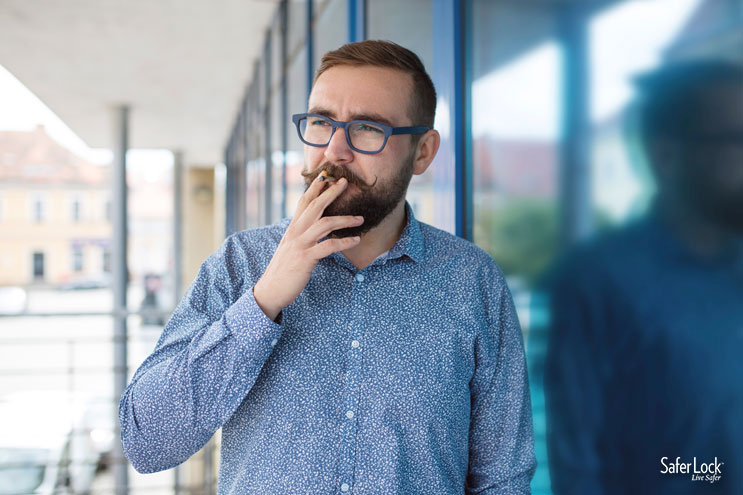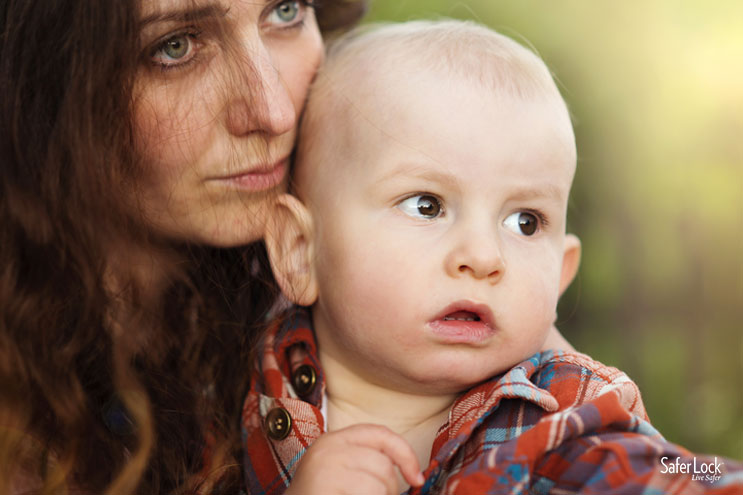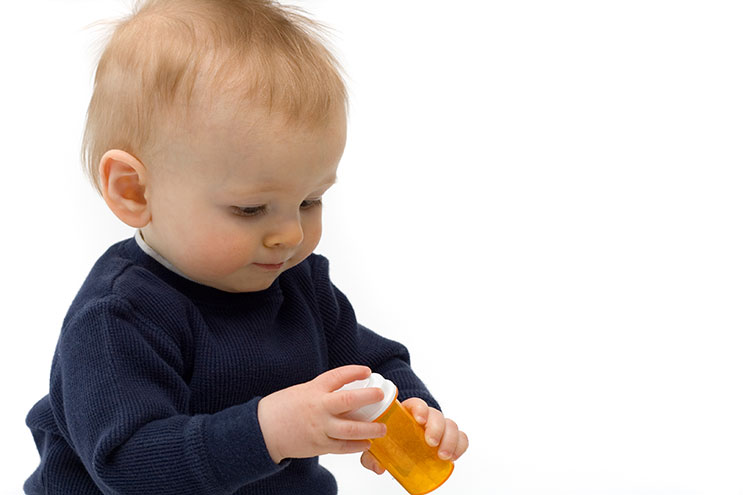With marijuana now legal in 23 states and Washington D.C. for medicinal or recreational use, cannabis is now found in more and more homes across the U.S. Whether marijuana is used as an opioid-free alternative to pain management or any other reason, cannabis-using adults have an added responsibility if there are children in the home; keeping marijuana out of the hands of their children.
What Parents who Smoke Marijuana Should Know
Accidental Pot Poisoning is On the Rise
An unfortunate effect of increased legalization of marijuana is a rise in accidental child pot poisonings. Since 2006 until now, the American Association of Poison Control Centers has reported a 610% increase in child pot poisoning for children 5 years and younger.
When a child accidentally ingests an edible or other form of marijuana, they can face serious side effects and need treatment from intensive care. In states where parents can simply walk into a retail dispensary and select their favorite strain to purchase, they have an additional responsibility to keep their pot out of reach of their children.
Pot Parenting Leads to Child Welfare Concerns
Just because you live in a state where recreational marijuana is legal, such as Colorado, Oregon, or Washington, doesn’t mean child protective services won’t investigate you for smoking pot. And a medical prescription for marijuana will not protect you from child protective services, either. Child welfare agencies are taking the safety and wellbeing of children in homes with marijuana smoking parents very seriously.
Brittany Driver writes the Pot and Parenting column for The Denver Post’s The Cannabist website. Driver, an admitted pot smoking parent herself, contacted child protective services to get the real story on parental marijuana use. “Legalizing marijuana use doesn’t mean authorities are going to be OK with you smoking a joint in your house while your kids watch television in the next room,” says Driver. She warns that child protective services do not want parents smoking in their home at any time a child is home. “Parents who smoke marijuana are at a real risk of run-ins with child protective services and lawmakers, and need to take extra care to practice responsible marijuana use when there are children living in the home.”
Keep Marijuana and Supplies Locked Away
Driver keeps her marijuana out of reach in a childproof cabinet so high she can barely reach it herself. “Responsible pot parenting includes keeping children safe from the real dangers of accidentally ingesting edibles or other forms of marijuana,” she advises parents.
In Colorado, medical and recreational marijuana must be sold in opaque, child-resistant packaging. But any parent knows, childproof packaging will rarely keep a child out of something. The push-and-twist style childproof lids that come standard on prescription pill bottles, over the counter medications, and even hazardous household cleaning items can easily be opened by a toddler in mere minutes.
Just like you would take extra precautions to keep medicines, prescription drugs, and other potentially dangerous items in your home away from your children, you should take the same precautions with your marijuana. To help assure your pot stays out of the hands of children of all ages, store it in a bottle with a combination locking cap, or in a locking medicine box.
Label Edibles and Keep Them Out of Reach
Edible marijuana products such as candies, cookies, and other treats can be easily mistaken by a child for a non-edible goody. The majority of accidental pot poisonings occur when a young child eats a marijuana edible. Clearly label your edibles, and store them far away from children’s food. It is best to keep these securely locked as well. A lockbox or other locking medication storage option kept in a room other than the kitchen is an ideal way to be sure your little one doesn’t mistakenly try your edibles.
Don’t Medicate in front of Children
Advocates and experts agree: don’t use marijuana in front of your children. Americans for Safe Access recommends that you consider medicating when your child is already in bed, or when you won’t interact with your child for several hours. In addition, don’t drive your children in a vehicle if you have used marijuana, and don’t medicate inside the home if possible. A house that smells like marijuana can lead law officers and child protective services to consider the home unfit for children.
Talk to Your Kids
If your kids are old enough to understand, talk to them about the issues surrounding marijuana just like you would with cigarettes, alcohol, and other substances. Even in states where marijuana is legal for recreational reasons, it is still illegal for persons under the age of 21.
An equally important discussion to have is the impact of marijuana use on developing teen brain. Studies have shown that regular marijuana use changes the teen brain in areas that control memory and problem solving, which can affect cognition and academic performance. The teen brain is also more susceptible to addiction of any kind. Even when recreational pot is legal, it should only be used by adults.
Parents who smoke marijuana are at a real risk of run-ins with child protective services and lawmakers, and need to take extra care to practice responsible marijuana use when there are children living in the home. In addition, responsible pot parenting includes keeping children safe from the real dangers of accidentally ingesting edibles or other forms of marijuana.




